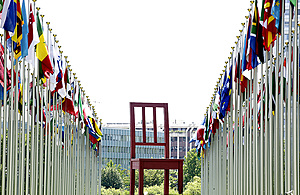Coronavirus press conference 26 May 2020
Good afternoon and welcome to Downing Street for the daily coronavirus briefing.
I’m joined by Professor John Newton, our test and trace coordinator.
Before I provide an update on the work we are doing to combat coronavirus, I’d like to update you on the latest figures.
In total, 3,681,295 tests have been carried out in the UK, including 109,979 tests yesterday;
265,227 people have tested positive, that’s an increase of 2,004 cases since yesterday.
Sadly, of those who tested positive for coronavirus, across all settings, 37,048 people have now died. Yesterday, across the UK, 134 deaths were reported.
But for the first time since 18 March, I am very encouraged to confirm that yesterday there were no deaths from coronavirus recorded in Northern Ireland.
I want to pay tribute to Robin Swann, my opposite number, and all of those across the NHS and public health in Northern Ireland, and the people of Northern Ireland who have shown such resolve to be able to bend the curve down and thank them for all the work they have done.
While the news might not be this positive every day, I look forward to continuing to work with them to keep the virus under control in Northern Ireland.
Today’s figures from the ONS show across the UK as a whole, the lowest number of deaths from coronavirus for six weeks.
This is a national endeavour. And whatever the headwinds, as a country we can’t let up on this.
We are past the peak. We’re flattening the curve. We protected the NHS and the number of deaths is falling. We must keep our resolve.
I just want to say a massive thank you to everybody, over the Bank Holiday weekend, who stuck to the social distancing rules.
And to especially my colleagues in the NHS and in social care who are doing so much.
Even though we are through the peak, there are still 8,802 people in hospital with coronavirus in the UK.
And there are still 98 NHS colleagues in hospital with coronavirus, including some of whom who are seriously ill.
So we must maintain our focus. And there are two areas I’d like to provide an update on today. PPE, and treatments. Both incredibly important for the future of tackling this disease – PPE and treatments.
PPE
First, we have been working hard to build our supplies of personal protective equipment.
I know how important this is, especially to colleagues on the frontline.
We all heard in the early weeks of this crisis, the calls from the frontline for more, and better PPE.
And we all saw the global scramble to acquire it.
I have been completely open about the scale and the difficulties of this challenge – building a new supply chain from scratch and of course the operational challenge of delivery.
General Sir Nick Carter, Chief of the Defence Staff, said it himself – this is the single greatest logistical challenge he had faced in 40 years of service.
And in response, thanks to the Armed forces and so many others, including so many in the NHS, we have seen a mammoth effort.
We have ramped up domestic production. And I can announce that we have now signed contracts to manufacture 2 billion items of PPE here in the UK.
I set a national challenge here. And I’m absolutely delighted that Lord Deighton has stepped up and is helping us to deliver it.
Around the world, we have signed deals with over 100 new suppliers, including agreeing contracts for a further 3.7 billion gloves.
Whilst we continue to improve the logistics, and work hard to get everyone the PPE they need, these new supplies mean we are not simply keeping up with demand – but are able to begin to replenish our stockpiles.
There is a lot further to go on PPE, as on so many things, but we have made significant progress, and I’d like to thank everyone involved.
And PPE is of course so important as it’s about protecting the people who protect us. We will do that for as long as this virus remains on our shores.
Research and development
Next, I wanted to update you on some of the remarkable R&D into treatments that is taking place all across the UK.
One of Britain’s greatest strengths is our life sciences and research. And we are leading the world in the clinical trials being done here.
As I said at this podium last week, the very nature of scientific enquiry means that not every project will bear fruit.
But I am determined that we will explore every possible avenue.
The RECOVERY trial is the world’s largest trial of potential coronavirus treatments.
And because our NHS is a universal system, which we are all part of, we have some of the best data and can do some of the best research.
Today I can announce that we are beginning a new trial, for selected NHS patients, of an anti-viral drug, called remdesivir.
There have already been some promising early results on coronavirus patients, with early data suggesting it can shorten recovery time by about around four days.
As you can understand, we will be prioritising the use of this treatment where it will provide the greatest benefit. This is probably the biggest step forward in the treatment of coronavirus since the crisis began.
These are very early steps. But we are determined to support the science, and back projects that show promise.
I’d like to thank the NHS, the MHRA, the devolved administrations because this is UK-wide, and Gilead the pharmaceutical company, for their work in making this happen.
After all, it is worth remembering that in the battle against this virus, we are all on the same side.
So we will keep working across the world to develop the vaccines and the treatments – and indeed the vaccines – that will help us turn a corner.
But until a treatment or a vaccine comes good, there is no simple way to defeat this virus.
So we must not lose our resolve.
So please – stay alert, control the virus and save lives.


